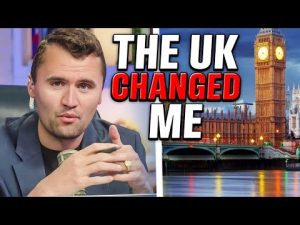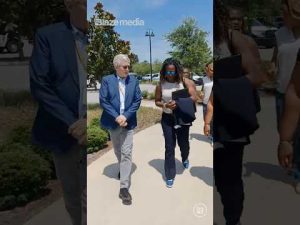In the wake of the recent terror attack in Washington, D.C., which tragically claimed the lives of two Israeli embassy employees, political responses have flooded in from various corners of the political spectrum. The swift condemnation from leaders like Muriel Bowser, the D.C. mayor, and Alexandria Ocasio-Cortez (commonly referred to as AOC) may seem earnest, yet they fail to address the deeper issues surrounding rising anti-Semitism and how some factions of the left have inadvertently perpetuated a culture of intolerance. The more pertinent discussion is not solely about labeling actions as anti-Semitism, but instead about the lies and ideologies that facilitate such violence.
As communities come together to stand against hate, one must question whether these political figures are truly ready to confront the root causes of such extremism. Bowser’s comments about intolerance for anti-Semitism ring hollow when juxtaposed against the historical context of America’s current political climate. How can we expect genuine solutions to emerge when the dialogue remains tethered to vague terminology, rather than a rigorous examination of the underlying motivations for violence against Jewish individuals?
AOC’s statement emphasizes the need for societal clarity in confronting anti-Semitism, yet she has previously expressed support for movements that have a track record of fostering division. This contradiction invites skepticism regarding the sincerity of her commitments. When public figures conflate hatred for Israel with anti-Jewish sentiment, they provide an opening for groups that peddle anti-Semitic narratives while simultaneously claiming to fight evil. The persistent invocation of anti-Semitism without a clear set of definitions only serves to dilute the urgency of the matter.
The crux of the issue lies in the struggle to define anti-Semitism accurately in today’s political discourse. It is important to recognize that anti-Semitism does not simply fall under the broader umbrella of racism. It is a complex conspiracy theory that manifests in many ways, often contradicting itself. This semantic muddling allows individuals to perpetuate harmful stereotypes while maintaining plausible deniability. The consequences are dire: violence gets a free pass while harmful ideologies fester and multiply.
Instead of focusing solely on the term “anti-Semitism,” it is crucial for political leaders, especially those on the left, to confront the lies and mischaracterizations about Israel and its supporters. Distorted narratives like claims of a genocide or analogies to apartheid pervade public discourse, often leading to real-world violence. It is alarming that an individual can call out “free Palestine” while also committing heinous acts without an explicit challenge to the rhetoric that fostered their actions. As long as this environment exists, calls for zero tolerance lack the necessary depth to effect real change.
In the face of such tragedies, the real dialogue should engage with the lies being told—the very fabric of deception woven into contemporary political narratives. Real clarity can emerge only when there is specificity in language that cuts through obfuscation. Recognizing the patterns and consequences of these lies, and the ideologies that enable them, offers a more productive approach than merely labeling actions as anti-Semitic.
As the nation grapples with these issues, it becomes clear: politicians must confront the uncomfortable truths within their ranks. Whether it be the rhetoric surrounding Israel or the groups that perpetuate anti-Jewish sentiments under the guise of activism, shirking from honesty only prolongs the cycle of violence and misunderstanding. A genuine commitment to addressing these issues could pave the way to a more productive and peaceful dialogue, ultimately leading to a safer society for all.







